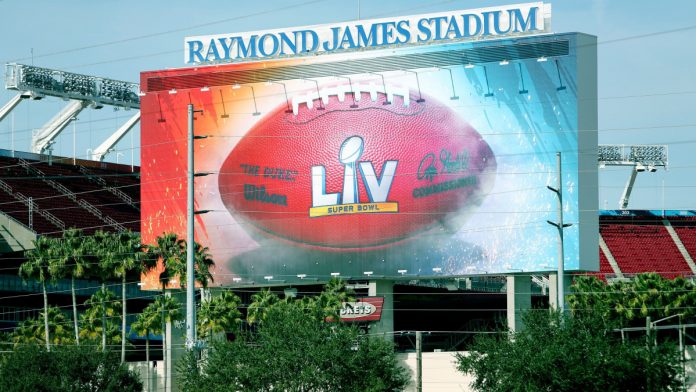American Gaming Association research has found that 23.2m Americans plan to bet a total of $4.3bn on this year’s Super Bowl LV matchup between the Kansas City Chiefs and Tampa Bay Buccaneers.
Key findings from the survey, conducted by Morning Consult, reflect dramatically shifting betting patterns amid the COVID-19 pandemic, with a record 7.6m to bet on the NFL showpiece via online sportsbooks, up 63 per cent year-over-year.
“This year’s Super Bowl is expected to generate the largest single-event legal handle in American sports betting history,” said Bill Miller, AGA president and CEO.
“With a robust legal market, Americans are abandoning illegal bookies and taking their action into the regulated marketplace in record numbers.”
An expected overall drop in Super Bowl betting is almost entirely caused by pandemic-led restrictions, says that AGA, with the largest declines anticipated for retail sportsbooks and casual bets, like pools or squares, that are made in social settings.
Further findings report that 1.4m Americans plan to bet in-person at a sportsbook, down 61 per cent from 2020; 1.8m bettors plan to place a bet with a bookie, down 21 per cent; 4.5m Americans plan to place a pool, squares, or similar bet, down 19 per cent; and 11.9m plan to bet casually with friends, down 18 per cent.
Since last year’s game, 36 million more American adults have gained the opportunity to safely bet in legal markets in their home state with seven new jurisdictions now live, these include Colorado, Illinois, Michigan, Montana, Tennessee, Virginia, and Washington DC.
Furthermore, 65 per cent of expected Super Bowl bettors say it is important for themselves personally to use a legal, regulated sportsbook for their bets, while 34 per cent remember seeing responsible gaming messaging in the past year, up five points from 2020.
“This data is an encouraging sign that our efforts to ground the expansion of sports betting in responsible gaming is taking hold,” added Miller. “Responsible gaming is core to legal sports betting’s long-term success, and this is borne out by continued demand for consumer protections only available in the legal market.”










